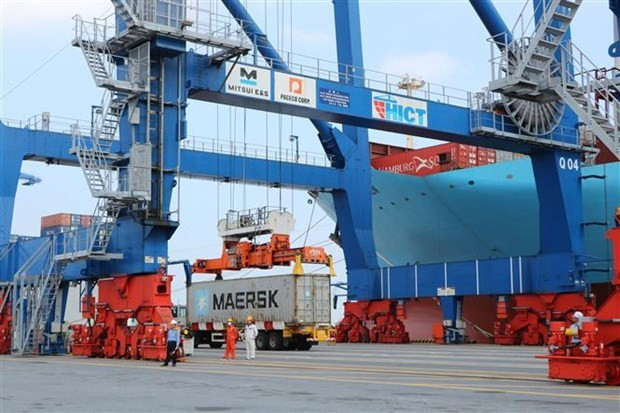
Geopolitical conflicts have impacted commodity prices and markets, increased inflationary pressures as well as the risk of a new inflation-interest rate spiral. And Vietnam is not an exception.
Dr. Nguyen Tri Hieu, an economist specialising in finance and banking, said that the first and most obvious impact is on commodity prices. As an oil exporter, Vietnam sells crude oil and imports processed oil for use. Therefore, when world oil prices increase, it affects the price of imported goods, especially energy products.
Escalating conflicts can push up the price of safe haven assets, including gold and the US dollar. Rising foreign exchange rates put Vietnam's domestic currency under pressure to depreciate, amidst the high risk of rising inflation. This causes additional difficulties for the central bank's efforts to control inflation and stabilise exchange rates, Hieu stated.
Dr. Nguyen Quoc Viet, Deputy Director of the Institute for Economics and Policy Research (VEPR), said investment inflows into Vietnam's economy may also be affected.
In the current trend of reshaping international supply chains and global investment and trade, Vietnam is emerging as an attractive destination. However, when there are geopolitical tensions, investors tend to avoid risk and invest domestically, or regionally.
Shanaka Peiris, Division Chief of Regional Studies at the International Monetary Fund (IMF)’s Asia and Pacific Department (APD), said that there are many signs of Vietnam's recovery in the fourth quarter of 2023, but it is difficult to achieve its growth target for this year.
Vietnam faces difficulties in export, real estate and financial sectors, but its economy is recovering, he said.
When reform measures are implemented, Vietnam will overcome "short-term headwinds" and will maintain growth momentum in the medium term, based on integration into value supply chains as well as foreign direct investment capital flow.
According to a report released by the World Bank (WB) on October 20, Vietnam’s economy registered 5.3% year-on-year growth in Q3 compared with 4.1% year-on-year in Q2, due to a gradual recovery of exports. However, domestic consumption remained subdued and credit growth continued to be slow, reflected the weak private domestic investment and investor confidence.
ADB Country Director for Vietnam Shantanu Chakraborty said that domestic consumption, export and public investment will be main growth drivers of Vietnam’s economy in 2024.
Maintaining the pace of public investment will be crucial to rejuvenate economic activity, generate employment, and enhance domestic consumption, he said.
By some estimates, there is about 30 billion USD of public investment that has been planned by Vietnam, so concerted efforts need to be made to expedite spending the money. That will really boost demand in the market, lead to employment generation, and foster overall economic activities, he added.
Head of the International Monetary Fund (IMF) 2023 Article IV Mission to Vietnam Paulo Medas said that in the short term, downside risks to growth remain large. Further efforts to safeguard macro-economic and financial stability and accelerate reforms will ensure that the economy remains on a safe footing. The policy mix should be re-balanced with greater emphasis on fiscal support to the economy and the most vulnerable.
According to experts, the improvement of the business environment and promotion of investment in human resources will help Vietnam attract high-tech, high-value-added FDI and increase productivity in the medium and long-term./.VNA